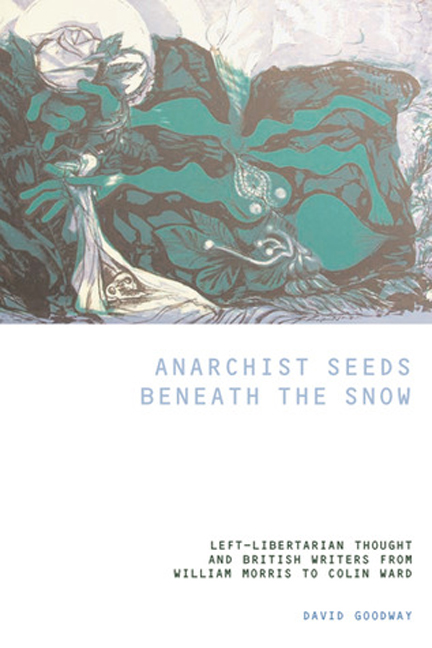 Anarchist Seeds Beneath the Snow
Anarchist Seeds Beneath the Snow Book contents
- Frontmatter
- Contents
- Dedication
- Acknowledgements
- Abbreviations
- 1 Introduction
- 2 Anarchism and libertarian socialism in Britain: William Morris and the background, 1880–1920
- 3 Edward Carpenter
- 4 Oscar Wilde
- 5 John Cowper Powys I: His life-philosophy and individualist anarchism
- 6 The Spanish Revolution and Civil War – and the case of George Orwell
- 7 John Cowper Powys II: The impact of Emma Goldman and Spain
- 8 Herbert Read
- 9 War and pacifism
- 10 Aldous Huxley
- 11 Alex Comfort
- 12 Nuclear disarmament, the New Left – and the case of E.P. Thompson
- 13 Christopher Pallis
- 14 Colin Ward
- 15 Conclusion
- Bibliography
- Index
12 - Nuclear disarmament, the New Left – and the case of E.P. Thompson
- Frontmatter
- Contents
- Dedication
- Acknowledgements
- Abbreviations
- 1 Introduction
- 2 Anarchism and libertarian socialism in Britain: William Morris and the background, 1880–1920
- 3 Edward Carpenter
- 4 Oscar Wilde
- 5 John Cowper Powys I: His life-philosophy and individualist anarchism
- 6 The Spanish Revolution and Civil War – and the case of George Orwell
- 7 John Cowper Powys II: The impact of Emma Goldman and Spain
- 8 Herbert Read
- 9 War and pacifism
- 10 Aldous Huxley
- 11 Alex Comfort
- 12 Nuclear disarmament, the New Left – and the case of E.P. Thompson
- 13 Christopher Pallis
- 14 Colin Ward
- 15 Conclusion
- Bibliography
- Index
Summary
The Second World War culminated with the dropping of atomic bombs on Hiroshima and Nagasaki. The twin problems which were now to confront both pacifists and pacificists were nuclear weapons and the Cold War; but a surprisingly long time was to elapse before sustained campaigns against the testing and possession of nuclear weapons got under way in the late 1950s. As early as 1945 Alex Comfort observed: ‘The atomic bomb is not different in kind or in result from the other weapons and methods of war which characterize contemporary society…’ To most participants in the future nuclear disarmament movement this assertion would have seemed a nonsense, since for them nuclear weapons were demonstrably, monstrously different from conventional armaments and it was exactly this difference which motivated their activism. Yet a significant minority were led – largely independently of theorists and ideology – to deduce libertarian conclusions as a result of their experiences, especially their involvement in the non-violent direct action of civil disobedience, and of their reflections on the relationship between ‘the Bomb’ and the State. How could nuclear weapons be eliminated without a profound social re-ordering, without indeed revolutionary change? Surely the problem was rooted in the very nature of governmental society and the State? Colin Ward was to ask
what if we are forced to conclude that the same coercive power which controls national law and order is responsible for the threat to world peace and survival? What if we are driven to see war and the threat of war as implicit in the nature of government and the state, to conclude in fact that war is the trade of government, the health of the state?
Ward continued:
If we are impotent about the Bomb it is because we are impotent about everything else, and we are powerless precisely because we have surrendered our power over our own destinies, and if we are ever to get it back we need to start thinking about a different kind of politics rather than see the issue in constitutional or electoral terms.
The nuclear disarmament movement finally began to mobilize with the British government's announcement in 1957 that it was to develop the hydrogen bomb. The Emergency Committee for Direct Action Against Nuclear War was immediately set up to support Harold Steele in his attempt to enter the testing area in the Pacific.
- Type
- Chapter
- Information
- Anarchist Seeds Beneath the SnowLeft-Libertarian Thought and British Writers from William Morris to Colin Ward, pp. 260 - 287Publisher: Liverpool University PressPrint publication year: 2006


